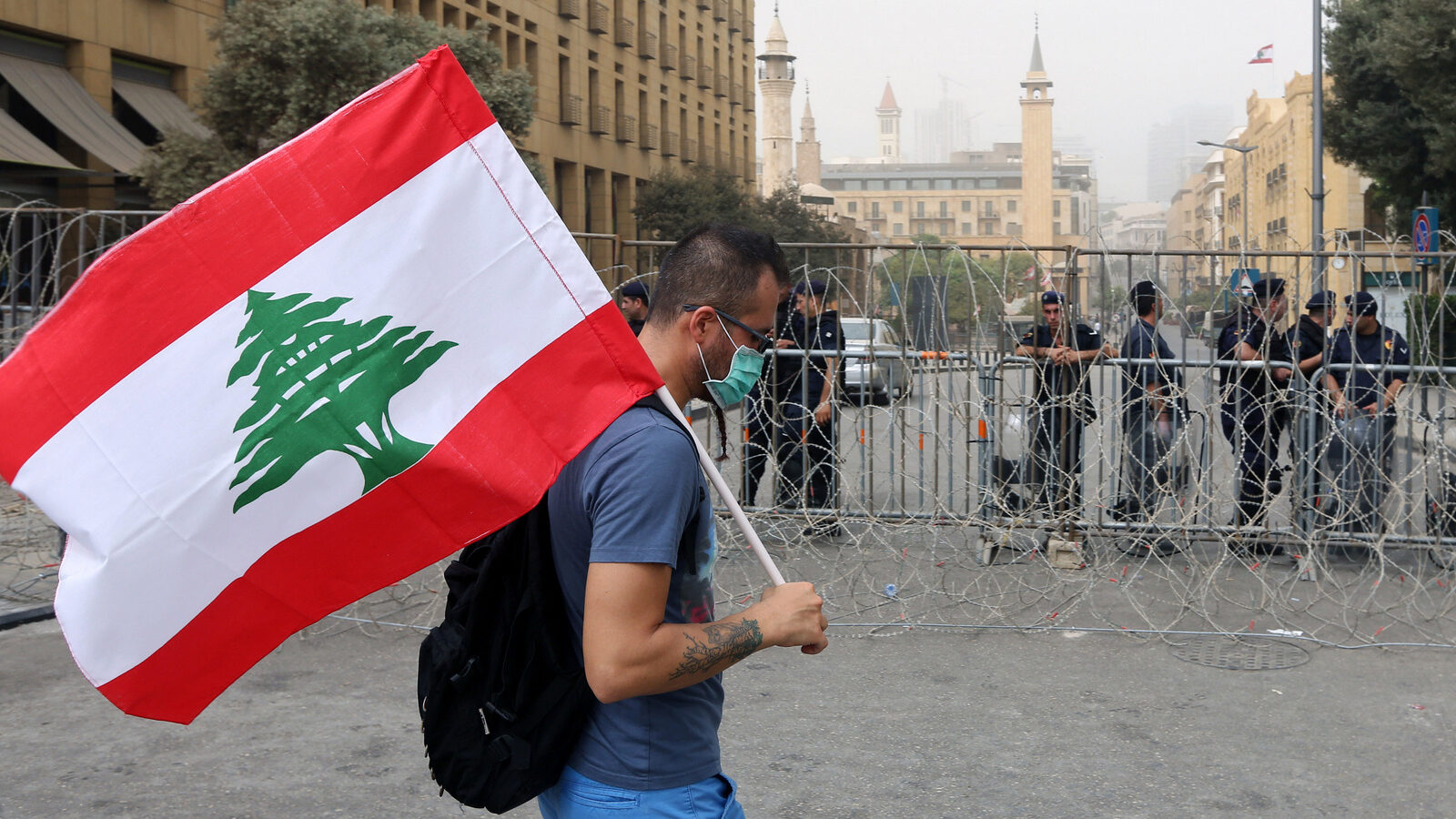
BEIRUT — Un-tethered by ethnicity and religious affiliation, Lebanon’s youth are uniting in protest, aiming to defend their shared values and country against the effects of corruption and monopolies birthed by capitalism.
On Aug. 29, for instance, an estimated 10,000 people gathered in downtown Beirut, calling for the resignation of the government officials responsible for the country’s ongoing waste crisis and demanding that new elections to be held.
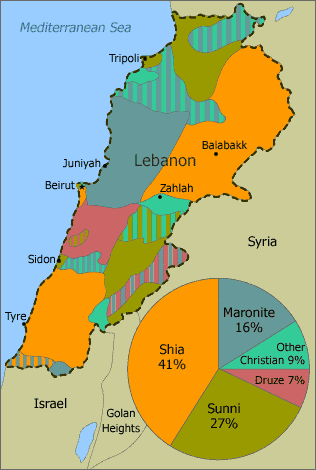
A nation propelled by political and institutional inertia, the #YouStink movement is taking Lebanon by storm. And though many observers have been quick to associate it with the 2011 Arab Spring movement, arguing Lebanon has also fallen victim to the revolutionary bug, Lebanese protesters argue otherwise.
#Beirut's streets will come alive with the voice of its people, again. Today at 6 #NejmehSquare Be there. #YouStink pic.twitter.com/2S1cfSa3aR
— Marina Chamma | مارينا شمّا (@eyeontheeast) October 8, 2015
Sarah Haddad, a student at Lebanese International University and political activist, spoke to MintPress News last month, emphasizing that Lebanon is not “another Arab Spring.”
“We are most definitely not revolutionary,” Haddad said by phone from Beirut. “What we are calling for and demanding is not regime change. There is no dictatorship to oust here. What we suffer from is kleptocracy. What we need are institutional reforms based on the principles of national equality.”
She continued:
“Lebanese want to reinvent their society and reclaim control over their state institutions. If I was to label our protest I would say it is a socio-political awakening. We are simply asserting our identity as Lebanese. About time, too! Lebanon cannot possibly be expected to remain in the shadows of those colonial powers which shaped it.”
Cities consumed by rotting garbage
Indeed, Lebanese anger toward their officials has been a long time coming.
“If anything, the Lebanese people have been late in their demands. Lebanon has a plethora of problems, one of which is corruption,” Maymwna Saleh, an American-Lebanese journalist and lecturer at Al Maa’ref University in Beirut, told MintPress,
A dream for venture capitalists and a prime example of capitalism run amok, Lebanon has been plagued by poor state infrastructure and failing social services, including electricity blackouts, weak health services, and the privatization of its garbage collection services. Lebanon is governed by an unscrupulous elite, itself organized around a political system which tends to favor a select few at the expense of the majority.
When it emerged that the Naameh landfill had closed after exceeding capacity, and piles of rubbish were amassing on the streets of Beirut, it prompted a wave of anger of such magnitude that Lebanese started protesting loudly and frequently.
Completely organic, apolitical and cross-sectarian, the #YouStink movement was born out of the failure of Lebanese officials to adequately manage state affairs. At the heart of the controversy is Sukleen, the private corporation hired to handle Beirut’s waste management for the past two decades.
Although waste management remains a municipal responsibility, those state funds were handed to Sukleen. Since July, much of the rubbish collected by Sukleen has been dumped under bridges and other public spaces, forcing residents to breathe the putrid smell of advanced decomposition.
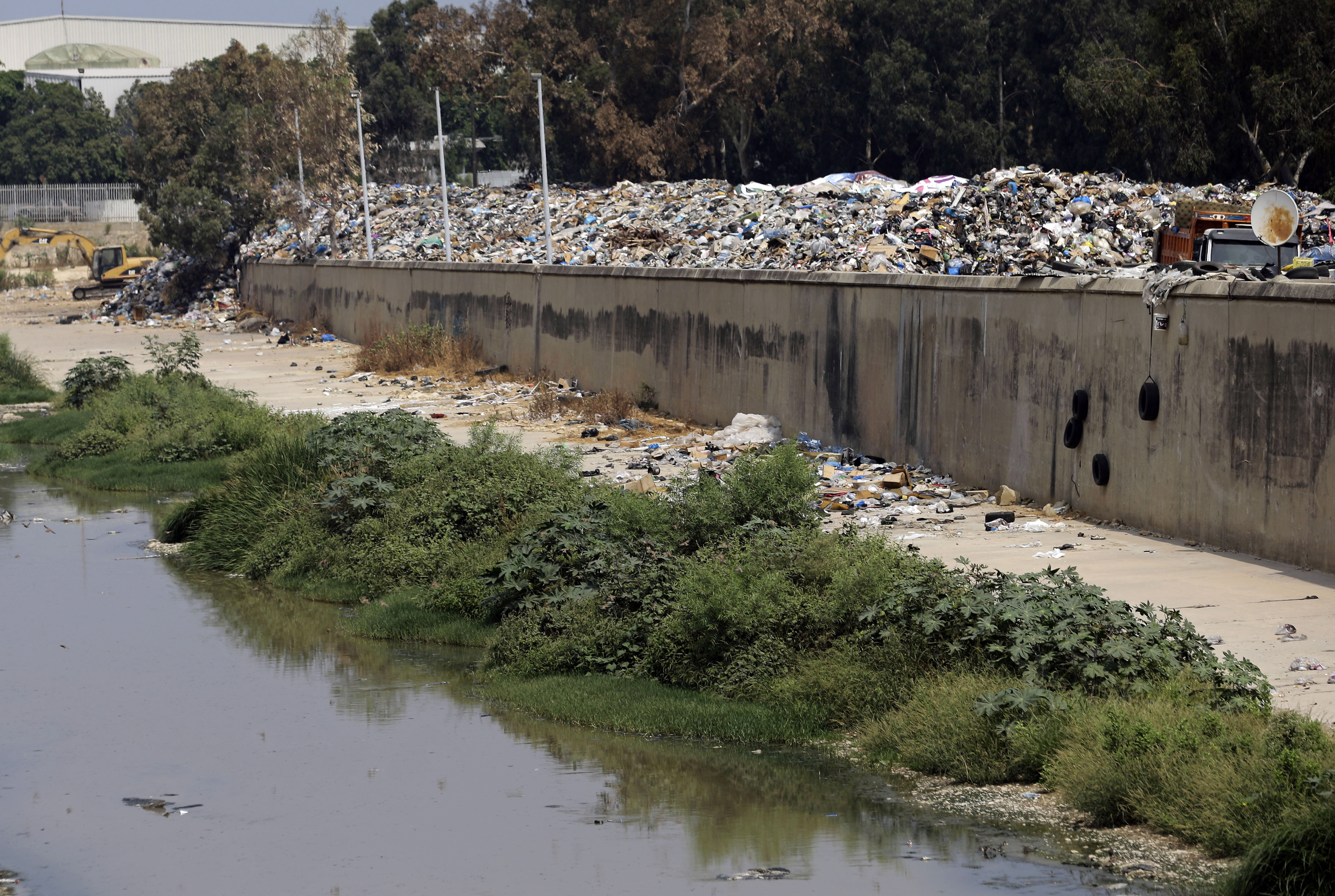
Sukleen is no stranger to controversy. Al Akhbar, a prominent Lebanese news organization, ran a report in 2012, laying bare the organization’s shady dealings. “The smell of scandal is rising from the controversial relationship between the Lebanese government and Sukleen, the country’s main waste management contractor,” Mohammad Zbeeb reported.
With Beirut buried under a growing pile of rubbish, Lebanese have vowed to take on their government and challenge the plutocracy. They want their officials to serve those they were meant to represent all along — the people. Officials, however, aren’t easily bowing to public pressure.
“Despite growing public outrage, Minister Akram Chehayeb has already confirmed he wishes to renew Sukleen’s contract with Beirut municipality,” Aly Sleem, the leader of the #YouStink movement, told MintPress.
While armed with a contingency plan to handle Lebanon’s rubbish crisis, state officials have yet to enact change on the ground.
“The objective of the government plan has been to identify a solution which has the least negative environmental impact, can be implemented as rapidly as possible and at the lowest possible cost,” said Chehayeb, the agriculture minister appointed by Prime Minister Tammam Salam to head the committee assembled to handle the trash crisis in late September.
All we are asking for is our right to live, yet they insist on their corruption and sectarian strife #YouStink http://t.co/Q9kymQH5Pf
— تي (@LebaneseVoices) October 7, 2015
For many, Sukleen has become a symbol of corruption, institutional inaction and political apathy — elements which, when combined, have effectively turned Lebanon into a state run by monopolies.
In July, Sami Gemayel, the head of Lebanon’s right-wing Christian Phalangist Kataeb party, accused Sukleen of stealing public funds and blackmailing the country to renew its contract.
The newly elected party leader said Sukleen was using the ongoing garbage crisis as a means to enforce another extension of its 20 contracts with the state, accusing it of being part of a “mafia.”
“There is a company [Sukleen] that has been making profits in the hundreds of millions of dollars over more or less 20 years on the expense of the Lebanese and the municipalities, and thus on the expense on the daily livelihood of all citizens,” Gemayel asserted, as quoted by Lebanon’s Daily Star.
“With utmost rudeness, after it made these huge amounts of money, this company stopped collecting garbage the moment its contract ended.”
After a few small protests in late July, tens of thousands began joining the civic movement, which swelled to an all-time high of 250,000 on Aug. 29. Protesters called for a legal, economically efficient solution to the garbage crisis that is also environmentally-friendly and safe for all Lebanese citizens.
The activist and the state

An ordinary Lebanese man reborn an extraordinary activist, Aly Sleem is the force behind the #YouStink movement.
Speaking to MintPress, Sleem described the makeup of the movement:
“We are a group of people who are not politically affiliated with any political sectarian party, we share no strict ideology and we’re not sectarian. We formed ourselves on July 21, a few days after the Naameh landfill was closed by the government.”
“Our demands are really simple,” he continued. “We ask for an environmental and sustainable solution for the garbage crisis in Lebanon, away from any political and sectarian brokerages.”

And it’s precisely this range of ethnic, religious and social backgrounds collected under a single movement that stands to inspire change beyond the country’s waste collection crisis. Shiite, Sunni, Druze, Orthodox Christian and atheist — #YouStink has mobilized broad popular support, which is a remarkable feat for a country which has been defined by its citizens’ religious differences since gaining its independence in 1943.
While #YouStink remains stubbornly apolitical in structure, its leadership is determined to challenge the ongoing political status quo by forcing the entire political apparatus to face the popular music.
Sleem told MintPress what the movement hopes to address after the waste management crisis is resolved:
“We have previously stated that we do not aim for any political position and that we have strict demands when it comes to the resolution of the garbage crisis. That being said, once a sustainable and environmental solution is found we will be tackling other social issues — electricity is high on our list. Despite an injection of funds of $1.5 billion, blackouts have become a terrible nuisance. There, too, corruption needs to be addressed.”
While protesters have said they remain committed to nonviolence and peaceful resistance in view of bringing about change, the state has opted to use water cannons, rubber bullets and tear gas against demonstrators.
“Officials’ use of violence only reinforces our determination,” the student-turned-activist Sarah Haddad told MintPress. “Lebanese will not be bullied into compliance. Those tactics will fail.”
Demonstrations turned violent last month after protesters attempted to surround the Lebanese parliament. “Dozens of anti-government protesters have clashed with police officers in Beirut during the most recent confrontations in the Lebanese capital. Media reports suggest that several people have been injured and arrested during the rally,” RT reported.
Photos of the army intelligence men in civilian clothes arresting and attacking the protesters #Lebanon #YouStink pic.twitter.com/OgYj3uc15O
— Abir Ghattas (@AbirGhattas) September 16, 2015
Speaking on condition of anonymity, several sources told MintPress that many protesters have already been warned that they could lose their jobs if they continue to exercise their right to free expression.
Hanan Shabaty, a Beirut-based journalist, told MintPress that in September she was informed that her manager would not tolerate having one of his staff “mingle with wannabe revolutionaries under pretense of media coverage.”
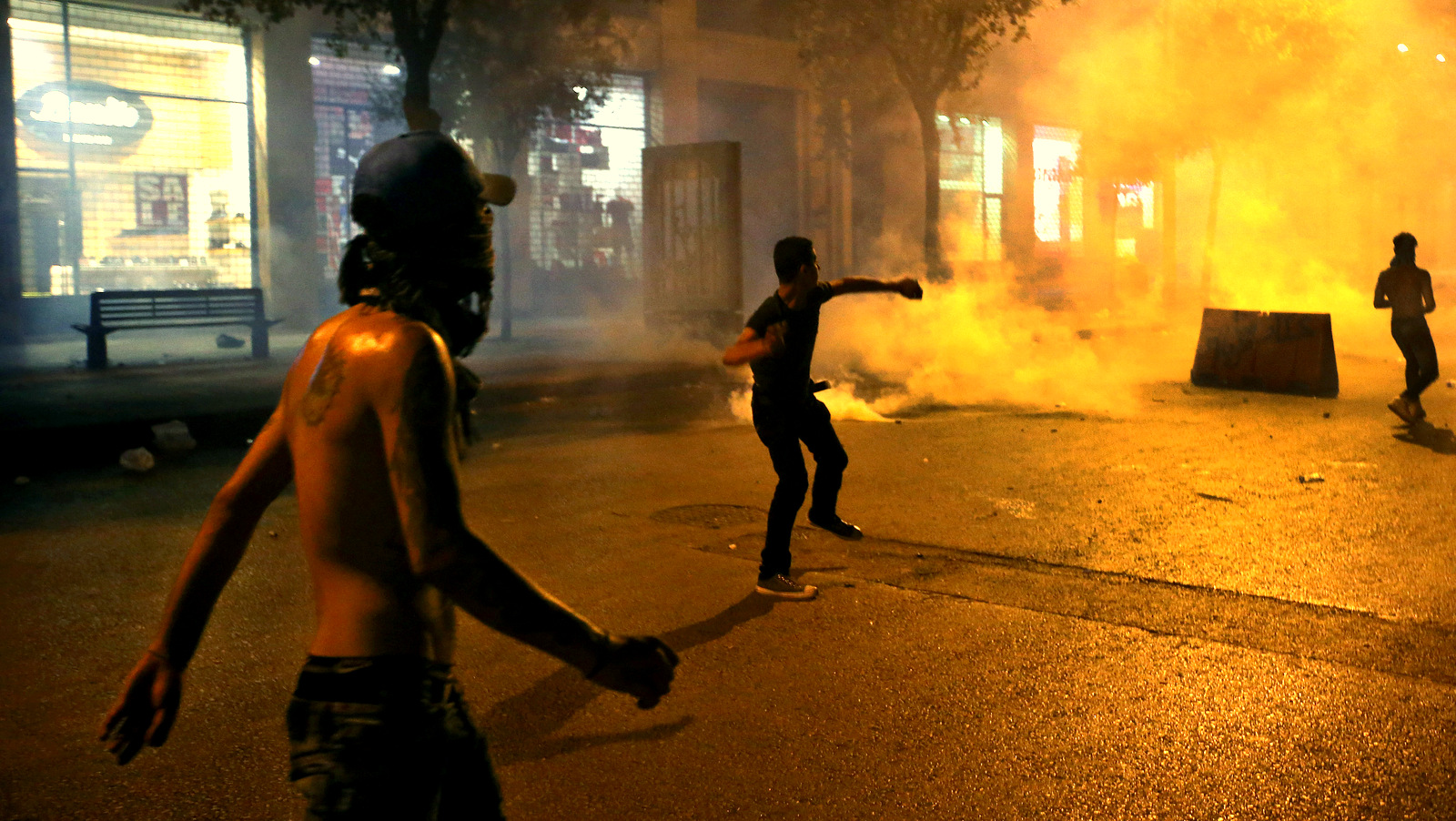
“Such pressures have become rather common those days. The establishment is using financial pressure to kill the civic movement,” Shabaty said. “But let’s face it: It’s not going to change anything, not really! We have reached a point of no return here and I don’t see any strong-arm tactic work in the long run.”
A march against corruption on Oct. 6 called on all groups and political contingents to unite for Lebanon. Protesters made their way from a finance ministry building in downtown Beirut toward the Central Bank in the city’s Hamra neighborhood. Soon after arriving at the bank, activist Asaad Zebian was arrested along with a member of the campaign, a move he described as being thug-like.
Forging a new identity
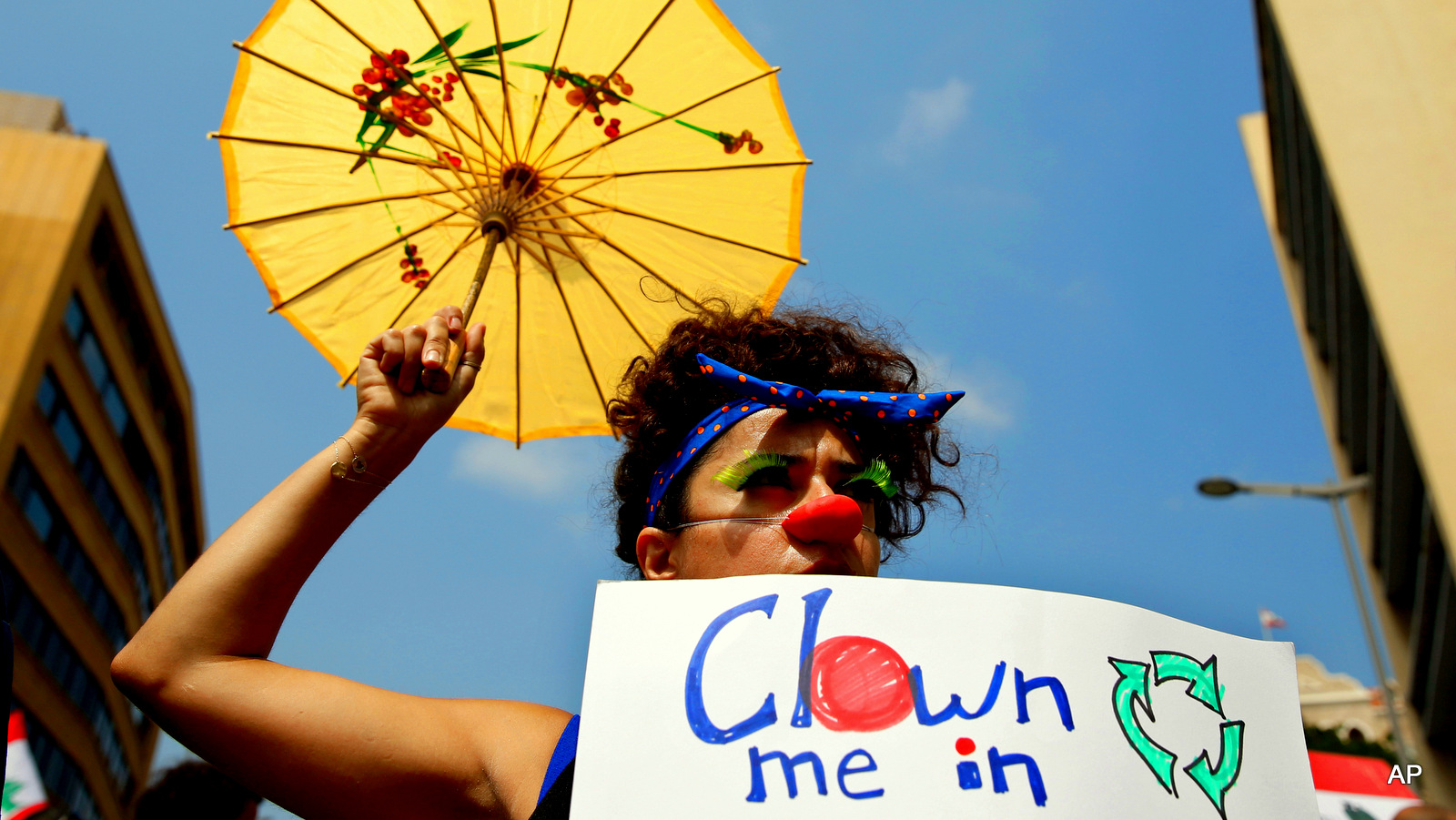
Amid the calls for reforms and institutional change, there’s been one unifying theme: a desire to build a better future by embracing each other’s differences, away from confessionalism.
Since 1942, Lebanon has functioned as a parliamentary democratic republic within the overall framework of confessionalism, a form of consociationalism in which the highest offices are proportionately reserved for representatives from certain religious communities.
A demographic study conducted in 2011 by Statistics Lebanon, a Beirut-based research firm, indicated that 27 percent of the population is Sunni Muslim, 27 percent Shiite Muslim, 21 percent Maronite Christian, 8 percent Greek Orthodox, 5 percent Druze, and 4 percent Greek Catholic, with the remaining 7 percent belonging to smaller Christian denominations. There are also small numbers of Jews, Baha’is, Buddhists, Hindus and Mormons.
A growing number of Lebanese see confessionalism and monopoly capitalism an expression of a pervert form of social and political exclusionism that’s eating away at society. Lebanon today, activists have decried, is a country beset by sectarian profiling and economic exploitation.
“Lebanon has became the capitalist cautionary tale. This is what radical capitalism looks like when applied absolutely,” Maymwna Saleh, the journalist and lecturer, pointed out to MintPress. “I think we can agree it is not working.”
Looking at the trash-clogged streets of Beirut, activists might have a point. Yet their concerns aren’t solely political or economic. The Lebanese rising up in #YouStink and other protest movements say they’re also tired of being defined and categorized according to myopic ethnic and religious criteria.
“We are more than just a sect or a region,” said Michel Nehme, a French teacher from Beirut, to MintPress, explaining:
“Lebanon never really had a chance to establish itself as a nation-state. The only time Lebanese have ever felt a grand sense of solidarity has been in resistance against Israel. I would argue that the Hezbollah has been very instrumental in opening up the possibility of an all-inclusive national narrative. Today we want to take this one step further by choosing to stand together not against a foreign power but for Lebanon.”
Although seldom discussed in the corporate media, those are the ideas which have fuelled the #YouStink movement. Somewhere between the anger, resentment and disillusion, Lebanese are learning to say “us” and “we” at the national level, exploding the old narrative of exclusion.


